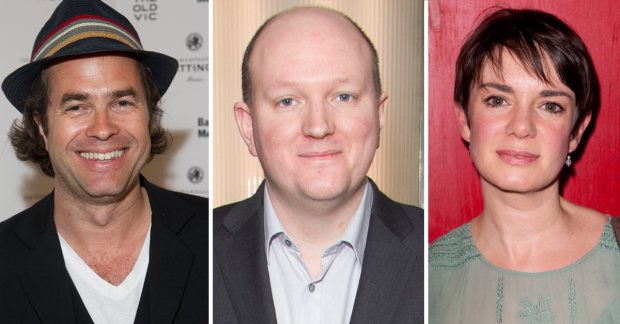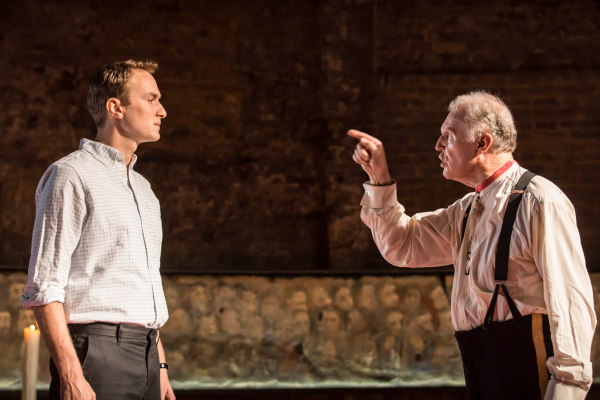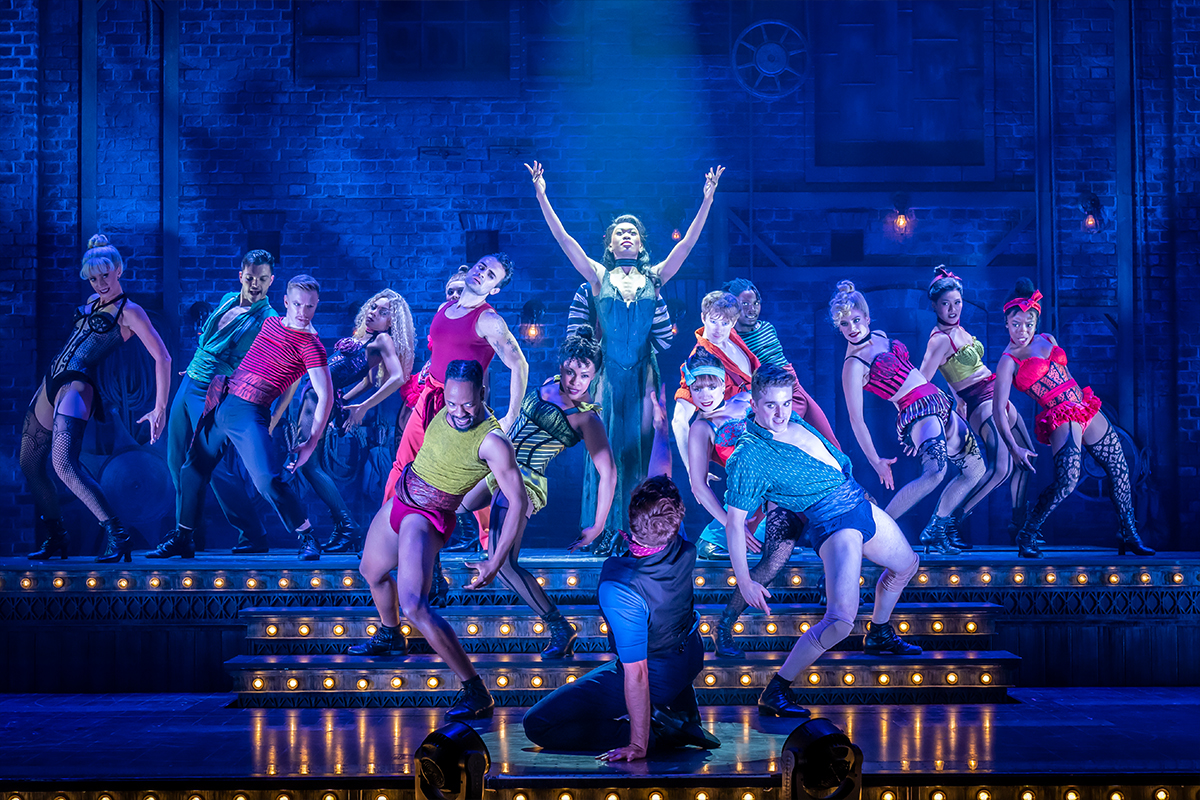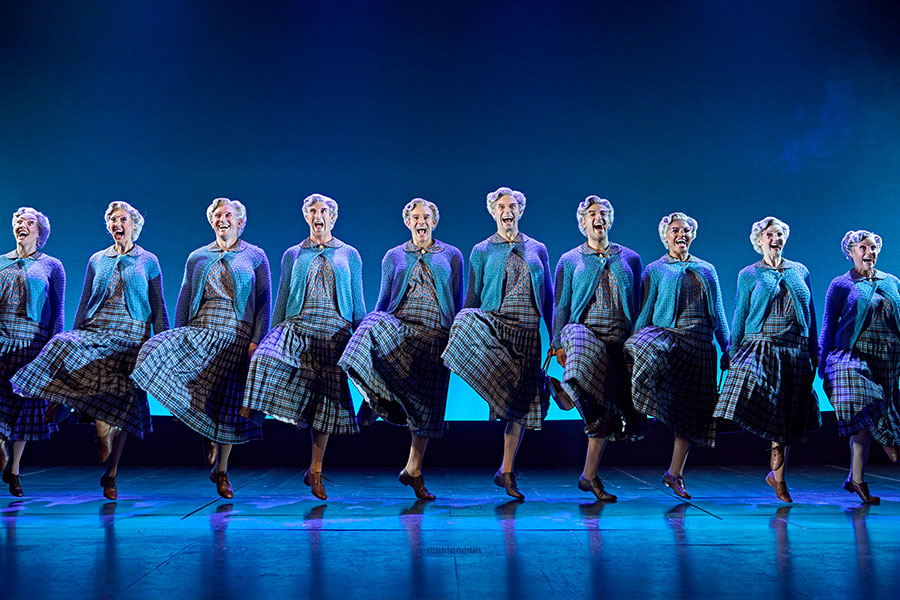Mike Bartlett: 'I was staggered that Doctor Foster was so popular'
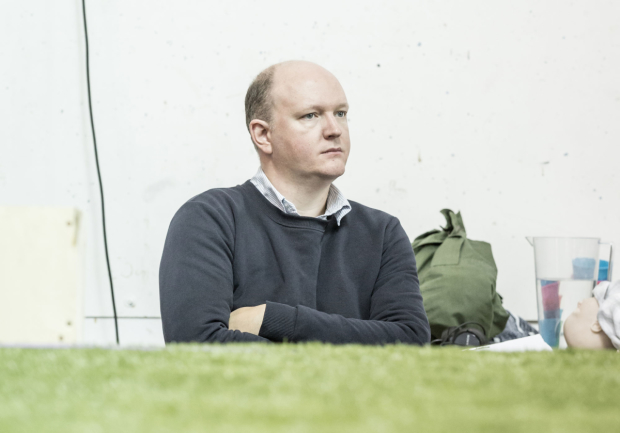
© Marc Brenner
Playwright Mike Bartlett is one of the UK's best and brightest creative talents. Since starting out writing plays over ten years ago his work has appeared on stage at the Royal Court, the National Theatre, the Bush Theatre, the Almeida and many many more. His plays include the seminal Earthquakes in London, Cock, Chariots of Fire and King Charles III. As well as being an Olivier Award winner, Bartlett has become a significant writer for TV, with his recent Doctor Foster bagging the New Drama Award from the National Television Awards. For his new play Albion he teams up with regular collaborator Rupert Goold.
How did you come to writing Albion?
I had been wanting to write a pastoral piece about a garden, with something of Chekhov in it, since Earthquakes in London. This is definitely not a sequel to that play, but I had thought if there was one it would be a Chekhovian play in an old house. Then there's a line that King Charles says in King Charles III about an Albion oak sown in British soil. I was thinking about that and gardens. But the galvanising force was what happened with this country and Brexit complicating and disrupting our sense of national identity.
Is it a Brexit play?
No, we never mention Brexit in the play. But because of Brexit the play had an urgency about it. It's as much about family and gardens. What it's looking at is where we are now and some of what it feels like to be British at the moment.
Is it about what one might describe as a quintessentially English garden?
It's set in England, and it's a very English feeling garden, but it discusses the fact that those gardens are associated with power. Power in Britain, in the last few centuries, has emanated from England and the south of England in particular.
Has this also been prompted by the fact that you're a keen gardener?
I now have a garden, which I didn't have for 15 years. People in cities have such an odd relationship with gardens. Your garden is often a park or a shared public space, or you go out of London to find the countryside. I crave greenery. There's something about the difference between the sort of garden that's shared, either through the National Trust or a park, versus your own private garden. If you want to talk about those issues of privacy versus community, it's quite a useful place to start.
But the play is about a woman who buys a garden?
Yes, Audrey buys a garden that she remembers from her youth, but has been left to rack and ruin. She buys it intending to restore it. Then drama ensues.
You mentioned Chekhov, is this play a bit of a departure, in terms of form, for you?
The Almeida is a venue which embraces the desire to take bold formal decisions. So with King Charles III it was in iambic pentameter, with Game we were shooting at people through a screen with guns. The Chekhovian form is perhaps seen as a slightly more conservative form of theatre. It's associated with a quieter sort of drama, a traditional drama. But I hope Albion actually subverts that. In a way, the form is radical. Especially in a world where most of us are dealing with three screens at the same time.
Earlier this year there were some surprising reactions to King Charles III being on the small screen…
Yes it was slightly predictable. There was a story in the Daily Mail about how we were being intrusive on Prince Harry, but next to the story there were long lens pictures of him with Meghan Markle. But I was very proud of it, mainly because we maintained the company of actors from the rehearsal room right through to two million people watching it on BBC Two. There was a celebration of Tim Pigott Smith recently [who played King Charles and passed away in April], and what constantly came up was his love of company and theatre as a family. That's the lifeblood of a project like that.
Doctor Foster just finished its second season, were you surprised at how many people watched it?
I was staggered. We wanted it to be a mainstream show on BBC One and it was always designed like that, but I thought it would be a slightly weird version of one of those shows. In some of the episodes you had three actors in a house for about 20 minutes. It was like a play. It was fantastic. I wanted to try to make every episode as different and as interesting as a new play.
When did you first decide to focus on playwriting?
I actually wanted to be a director. At university I wrote brilliant cover letters to get interviews for assistant director jobs and then I would utterly flunk the interview and have no charisma, which apparently you need as a director. I had been writing bits and bobs at the time and taking shows up to Edinburgh and I ended up writing a play and sending it to the same people I had applied for an assistant director position with. Suddenly I was talking clearly and fluidly about what I had written. I think a lot of people in theatre find it takes a little while to find your place.
Could you pinpoint a breakthrough moment for you?
The Royal Court did a brilliant thing with me in 2007. They combined paying me for my play My Child with a bursary to be writer-in-residence, and they also gave me a new commission before the first play had had its press night. It meant the money was enough for me to stop any other work and be a writer for a year. But it was also a gesture of confidence from a theatre to me. They were saying: 'You're not just fodder to be fished for ideas, we are committed to you in a longer way'. I can't emphasise how much that is necessary to cultivate a deeper sense of art in an artist. The money was also crucial, because I didn't have anyone standing behind me financially.
Albion runs at the Almeida Theatre from 17 October to 24 November, with previews from now.



